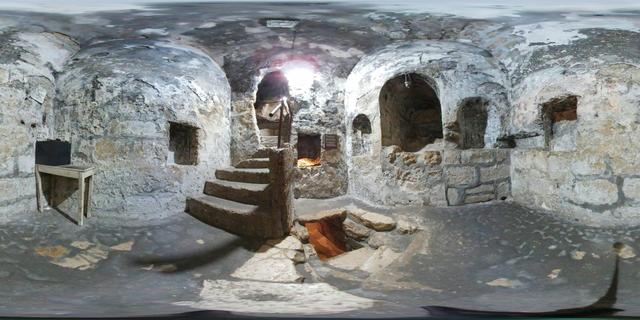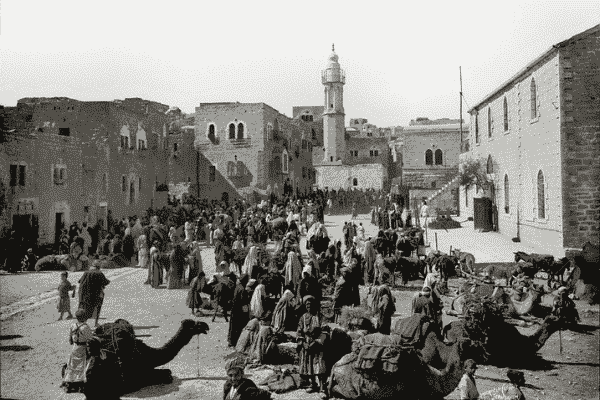The ancient history of Palestine
«Lord, disarm tongues and hands, renew hearts and minds,
so that the word that brings us together may always be 'brother',
and the style of our life become: shalom, peace, salam! Amen».
Pope Francis, prayer for peace, 8 June 2014.
Retenu, Haru, Canaan, Iuadea, Terrasanta, Falastīn ... as many names have been given to this region bordering the Mediterranean Sea as to the peoples and tribes that have inhabited this land.
Throughout history, Palestine has been ruled by short-lived kingdoms that alternated between conquests, sieges, plundering, wars, massacres and destruction.
Nomadic peoples, desert tribes, urban settlements, all the way to the cities of the Philistines, the people who around 1,200 BC sailed from Crete to Palestine and settled there, giving this land the name by which we still know it today.
The ancient history of Palestine proceeds with the rule of the Assyrians from 830 B.C., the Babylonians from 597 B.C., the Macedonians from 332 B.C., the Lagids and Seleucids from 129 B.C., and the Romans from 63 B.C.
From 390 Palestine was bound to the fate of the Eastern Roman Empire. The Arabs ruled in Palestine from 637 until the 10th century and saw the Crusaders conquer Jerusalem in 1099, later subjugated by Saladin's army in 1187.
The Ottoman Turks made Palestine their colony in 1517 and it remained so until the British presence at the dawn of the First World War.
In the 19th century, an estimated 20,000 Jews lived in Palestine.
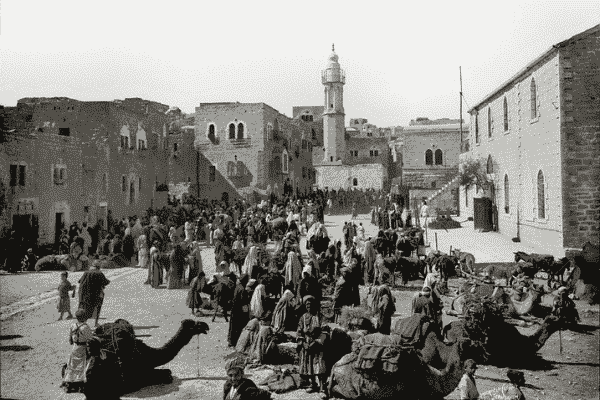
In modern times
A date that would change the fate of the inhabitants of Palestine forever is undoubtedly 1840. It was in this year, in fact, that the British Prime Minister, Lord Palmerston(1784-1865), proposed the idea of a permanent settlement of Jews in the land of Palestine. An initial proposal for Jewish colonisation of Palestine gradually came into being and Lord Palmerston defended his idea under the pretext of 'keeping the Eastern Gate open to British trade and troops'.
Twenty years later, the first wave of Jewish migration to Palestine began, many of them from Russia.
At the time 98% of the inhabitants of Palestine were Arabs.
The Palestinian Arabs realised that they were gradually losing control of their territory and in 1891 peasants and farmers protested against the sale of land to Jewish settlers.
In 1896, the Hungarian writer and politician Theodor Herzl is shocked by the Dreyfus Affair and wants to respond to the anti-Semitism that is rampant throughout Europe. In the same year, he published a book in Vienna entitled "The State of the Jews" in which he collected and justified the hope for the Jews to finally have their own state in which they could exercise full sovereignty.
Faced with anti-Semitism and exile, Herzl sees no alternative but to settle in a homeland that had been, indeed, the "land of the fathers". His goal is the creation of a homeland for the Jewish people.
The debate on the fate of the Jews grows in the West and, to discuss a possible Jewish state, the first congress of the Zionist movement opens in Basel in 1897.
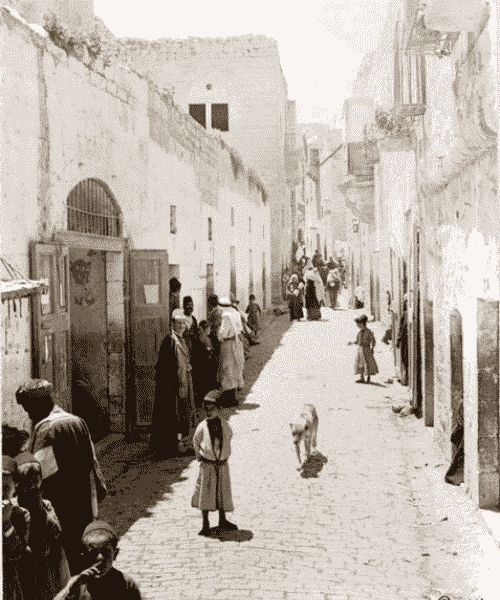
But what is meant by Zionism?
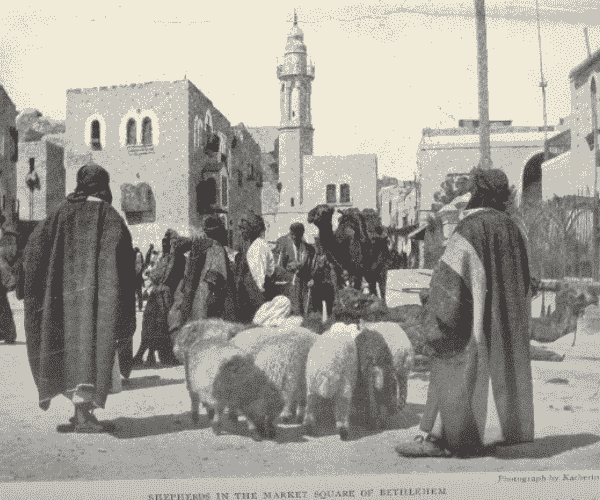
Shlomo Ben-Ami, writer and Israel's foreign minister during the Camp David negotiations, describes it this way in his 'Palestine: Unfinished History': «Zionism is a national movement that arose in Europe at the end of the 19th century to give political expression to the millennial yearning of Jews to return to Zion».'Zion'is one of the many biblical names for Jerusalem
To this was also added the romantic and legendary image of the hero David confronting and defeating the beastly Goliath.
Importantly, most rabbis, reformists, conservatives and orthodox in the early 20th century did not share Herzl's plan. According to them, in fact, the return of the Jewish people to the Holy Land was to be guided by the arrival of the Messiah, thus by God's will.
Nevertheless, the Zionist project proceeded slowly but steadily and increased its followers.
At the Seventh International Zionist Congress, one year after Herzl's death in 1904, the land of Palestine is chosen to establish a homeland for the Jews.
The first settlements of Jews in Palestine
The Zionist project had to come to grips with a very relevant detail: when Ben Gurion, whom we will discuss later, arrived in the land of Palestine in 1906, there were 645,000 Arabs and 55,000 Jews.
Most of the Jewish population lived in the 'four holy cities': Jerusalem, Hebron, Tiberias and Zefat.
At the time, relations between Jews and Arabs were good. Most of the former were ultra-Orthodox Jews who devoted their lives to the study of Scripture and prayer and lived off funds from abroad. Other Jews were merchants in small workshops. Palestinian Arabs were peasants and farmers, fallahīn in Arabic.
From the very first settlements, the Zionists never hid their attachment to the Promised Land. It can therefore be said that the seeds of conflict are present from the very beginning.
In 1909, the first kibbutz was established, a collectivist village in which the modus vivendi is sharing and working the land.
How does the West receive the news of these settlements?
The idea that Palestine is a wasteland, full of deserts and inhospitable swamps, is rampant in Europe and America. A Holy Land that needs to be brought back to life.
"Palestine is a land without a people for a landless people," said one of the early leaders of the Zionist movement, Israel Zangwill. These words were echoed by Moshe Smilansky, also a Zionist pioneer, who called Palestine a 'virgin land'. Finally, the founder and prime minister of the State of Israel, David Ben Gurion, described Palestine as 'primitive, abandoned and derelict'.
It was in a similar climate that, under the impetus of the Zionist movement, Jews gained more and more ground in Palestine.
The years of the First World War
Between 1908 and 1913, 11 new Jewish colonies were created and protests against the sale of land to Jews became louder. Relations - previously peaceful - between Arabs and Jews are destined to change irreversibly. The former sense a change that will not benefit them and foresee the creation of a Jewish state where the Arabs are not taken into account.
In such a situation, Europe enters the First World War.
In order to ensure a Western presence in the Palestinian region, the UK Foreign Secretary Arthur James Balfour wrote a letter to the Zionist Lord Rotschield on 2 November 1917.
The heart of the letter reads as follows: 'His Majesty's Government views favourably the establishment in Palestine of a national home for the Jewish people'.
This famous letter ends with a promise not to harm the communities already existing in Palestine.
The territory to which the Balfour declaration refers was still a province of the decadent Ottoman Turkish Empire and included the present West Bank, the southern part of present-day Lebanon, the Gaza Strip and the Golan Heights.
The Balfour Declaration is greeted with great joy by Zionists as the authorisation for the creation of a Jewish state in Palestine and the end of the centuries-old diaspora of the Jewish people. Tension rises along with the waves of Jewish migration.
In the meantime, on 16 May 1916, the secret Sykes-Picot Agreements were signed, awarding Palestine to the British. As is well known,from 1917 to 1922Palestine was subjugated to the British military commanded by General Allenby.
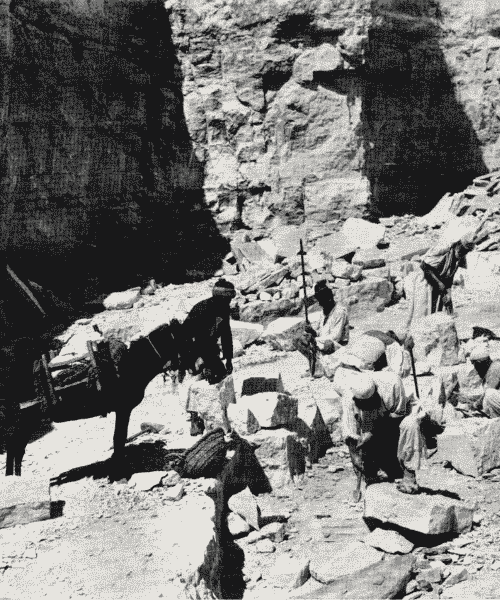
Palestinian nationalism and Jewish nationalism
The following years are characterised by riots and massacres by the two communities. Under British influence, the first serious population census was taken in 1919: 700,000 Arabs and 70,000 Jews.
In July 1922, the League of Nations gave Britain a mandate to prepare the creation of a Jewish nation state.
The Ottoman Empire, which had been experiencing a 'disintegration of the periphery' since the 17th century, officially declared the abolition of the Ottoman sultanate on November 1st, 1922.
The fall of the Ottoman Empire was a deep shock to the entire Muslim world.
Between 1924 and 1928 more than 60,000 Jews arrived in Palestine. Initially, the British promised the creation of an independent Arab state in Palestine in order to promote Arab rebellion against Turkey.
Following the shocking fall of the Ottoman Empire, the Arabs living in the Palestinian province lived in a society characterised by tribal loyalties without a clear national identity or territorial boundaries of their own. There was not yet a Palestinian nationalism, but perhaps more an Arab nationalism, uniting all Arab nations.
Indeed, one could conclude that Palestinian and Jewish nationalism developed in parallel, feeding off each other. The perceptions of the two national groups are obviously opposite: Arabs see the Jews as intruders and their presence in Palestine as another face of Jewish capitalism, while Jews see themselves as the rightful inhabitants of the Promised Land.
It is important to remember that the Jews who immigrated from Europe to Israel were mostly scholars, intellectuals, architects, artists, entrepreneurs. New businesses multiplied and along Tel Aviv, founded in 1909, one saw elegantly dressed, western-style men and women sipping coffee on the waterfront.
The Great Revolt of 1936 in Palestine
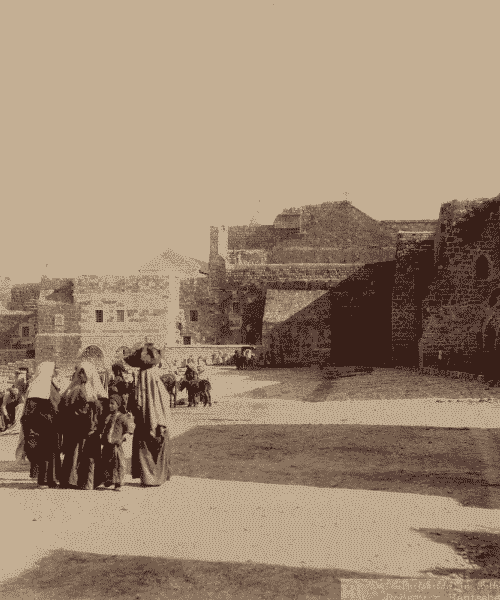
Ultimately, between 1933 and 1939, the arrival of tens of thousands of exiles in Palestine gave new impetus to the economy. The inhabitants of Tel Aviv tripled to 150,000 by then.
As mentioned earlier, in 1906 David Ben Gurion arrived in Palestine to participate in the creation of a homeland for Jews. In 1935, he is elected president of the Jewish Agency and in April of the following year, the Arabs call a general strike to demand an end to immigration and the sale of land to the Jews.
1936 is the year of the Great Revolt against Zionism and the British presence in Palestine. The British repression is appalling. Hundreds of Arabs were massacred and more than 300 Jews also died in the clashes.
On the eve of the outbreak of the Second World War, fearing that the Arabs would ally themselves with the Axis forces, the British stated that they would no longer support the creation of a Jewish state in Palestine. This is not the first and will not be the last evidence of the British government's fickle policy.
In Europe the Jews experience perhaps one of the greatest disasters in their history following the enactment of the Nuremberg Laws that threaten the very existence of millions of Jews. From Europe came the first rumours of the Holocaust that no one believed.
At the end of the Second World War, the British did not change their policy and London continued to refuse Jewish immigration to Palestine in fear of being driven out and no longer being able to exert their influence.
The Jewish people, traumatised by the genocide, feel that they are alone in the world and do not know where to live.
The United Nations International Commission of Enquiry
Following the attack of 22 July 1946 on the King David Hotel, the headquarters of the Mandate authorities in Palestine, the United Kingdom realised that Jewish formations were becoming increasingly organised and opted for retreat.
In April 1947, the UN appoints an international commission of enquiry whose report recommends the creation of a Jewish and an Arab state in Palestine.
It is certain that the tragedy of the Shoah greatly influenced the decision of the UN members. Indeed, many agreed that after the horrors experienced in the concentration camps, it was necessary to give the Jews a homeland.
The whole world is convinced of the urgency of reparation for the victims of Nazi barbarism; this reparation is only possible through the creation of a Jewish state.
Britain does not agree with the UN decision and tries hard to block Jewish immigrants from coming to Palestine. However, the British have to contend with a world opinion in favour of a peaceful regulation of the Jewish problem.
Surprisingly, in a speech to the United Nations, Andrej Gromyko, Foreign Minister of the Soviet Union, who had persecuted and imprisoned Jews in the Gulag for years, offers support for the Zionist project. The reason was purely strategic: he knew of the British retreat from the Middle East and wanted to exert his influence before the Americans.
In November 1947, over the greatest tragedy in the history of the Jewish people, the Palestine Committee resolution was adopted with 33 votes in favour, 13 against and 10 abstentions.
The UN resolution proposed the division of Palestine into two states with Jerusalem under international control.
Unsurprisingly, the majority of the Arabs of Palestine and all neighbouring Arab states reject this plan and any idea of partitioning Palestine. Israel was born inside the war.
The Nakba of 1948
1948 is a crucial year: it is the year of the so-called Nakba, 'catastrophe' in Arabic.
Following the UN resolution, the Zionists' weapon is to terrorise as many Arabs as possible into fleeing their villages. One example is the massacre in the small Arab village of Deir Yassin in March 1948.
On 14 May 1948, a festive crowd welcomed David Ben Gurion to Tel Aviv. The latter, with a large photograph of Theodor Herzl behind him, proclaimed the founding of the Jewish State, «which will bear the name of the State of Israel».
The Arab High Committee's response is not long in coming: all Arabs before God and History will never submit to any power that comes to Palestine to impose partition.
Great Britain ends the mandate and symbolically hands over the government of Palestine to the Zionist leaders. The British would never have bet on Israel's successful resistance against all Arab states and armies. The West Bank is annexed to the Jordanian Kingdom and the Gaza Strip occupied by Egypt. In 1948, the latter invades Palestine, starting the first Arab-Israeli war. Israeli military forces advanced on all fronts.
By winning the war, Israel conquers 26% more territory than the 1947 partition plan and takes control of 81% of Palestine. It is a historical fact that, after the war, Israel nationalised other lands that belonged to the Arabs.

The law of return
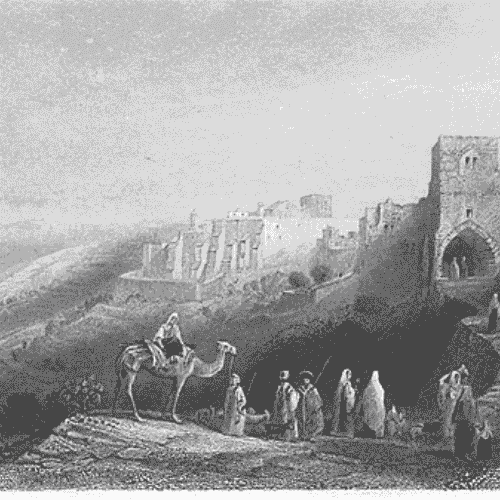
The '48 exodus numbered about 750,000 Palestinian Arabs out of the 900,000 who lived in the territories that Israel took control of. This left 150,000 Palestinians subjugated to Israel. Israel's victory shocks the entire Arab world.
Following the victory in the first Israeli-Palestinian war, the State of Israel abolishes British laws and issues the so-called 'law of return', opening the door to all Jews.
A veritable exodus from Europe begins. Most of the Jewish immigrants are survivors of the Shoah.In 1949 alone, more than 250,000 immigrants landed and the population increased by 50 per cent.
Strikingly, these people are foreign to each other, speak different languages and the priority becomes integration. Initially, however, Ben Gurion's government cannot manage the flow of migrants and is forced to practise a policy of austerity.
While there is a lack of food, work and housing in Israel, in the rest of the Arab world, the Palestinian question takes hold more and more strongly, and the PLO(Palestine Liberation Organisation) decides that the only way forward is armed conflict.







